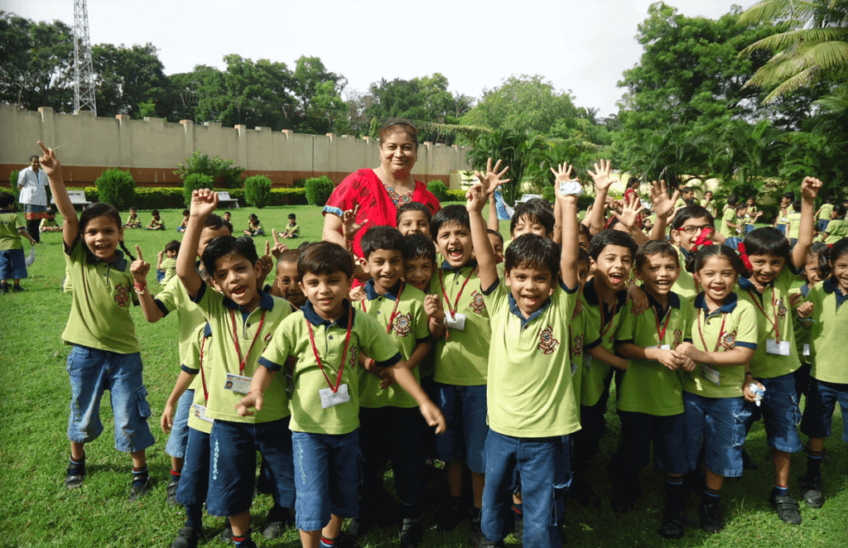
What is preschool?
Preschool, often referred to as nursery school or kindergarten, is an early childhood education program designed to provide a structured and nurturing learning environment for young children typically between the ages of three to five. Its primary aim is to prepare children for formal schooling by fostering their cognitive, social, emotional, and physical development during these critical formative years.
Preschools offer a wide range of activities and experiences that promote a child’s readiness for elementary school. These may include age-appropriate lessons in basic literacy and numeracy, arts and crafts, music, physical education, and social interaction with peers. Importantly, preschools place a strong emphasis on play-based learning, recognizing that children at this age learn best through hands-on experiences and exploration.
Moreover, preschools help children develop essential life skills such as communication, problem-solving, and cooperation, setting a solid foundation for future academic success and personal growth. This early exposure to structured learning environments also aids in the transition from home to school, making the educational journey smoother for both children and parents. In essence, preschool plays a crucial role in nurturing the holistic development of young minds, fostering curiosity, and building a strong foundation for a lifetime of learning.
What age does preschool start?
The age at which preschool starts can also depend on parental preferences and local educational policies. Some parents may enroll their children in preschool earlier to promote socialization and early learning, while others may choose to wait until the child is closer to kindergarten age.
Ultimately, the decision is influenced by various factors, including the child’s developmental readiness and the family’s specific needs and goals. Preschool typically begins around the ages of two to three, although there can be some variation depending on the country and individual circumstances.
Tips for finding perfect preschool
Finding the perfect preschool for your child is a significant decision that can shape their early educational experiences. Here are some essential tips to help you in this important quest:
- Start Early: Begin your search well in advance. Preschools often have limited spots, and starting early allows you more time to research and consider your options.
- Consider Your Priorities: Reflect on what matters most to you and your child. Are you looking for a specific educational philosophy, location, cost, or schedule that aligns with your family’s needs?
- Research Options: Gather information on local preschools. This includes public, private, and nonprofit programs. Seek recommendations from friends, family, and online resources.
- Visit Preschools: Schedule visits to potential preschools. Pay attention to the environment, teacher-student interactions, safety measures, and cleanliness.
- Ask Questions: Don’t be afraid to ask questions about the curriculum, daily routines, teacher qualifications, and the school’s philosophy. Understanding these aspects is crucial in making an informed decision.
- Observe Play-Based Learning: Ensure the preschool prioritizes play-based learning, as it’s essential for young children’s development.
- Check Accreditation: Look for schools accredited by recognized organizations to ensure they meet certain quality standards.
- Talk to Other Parents: Connect with parents whose children attend the preschools you’re considering. Their insights and experiences can be invaluable.
- Consider Location and Schedule: Evaluate the convenience of the school’s location and whether its schedule aligns with your family’s daily routine.
What do preschoolers learn?
Preschoolers embark on a critical phase of development, and their learning experiences are tailored to foster various aspects of their growth. Here’s a glimpse into what preschoolers typically learn:
- Social Skills: Preschool is a vital arena for children to develop essential social skills. They learn how to interact, share, take turns, and cooperate with their peers. These early interactions lay the foundation for healthy relationships later in life.
- Language Development: Language skills are a focal point. Preschoolers expand their vocabulary, improve pronunciation, and enhance comprehension through storytelling, conversations, and exposure to books.
- Basic Math and Literacy: While not formal instruction, preschoolers are introduced to basic math concepts like counting, sorting, and recognizing shapes, as well as early literacy skills through alphabet recognition, phonics, and pre-reading activities.
- Fine and Gross Motor Skills: Preschool activities often include exercises that promote fine motor skills, such as drawing, coloring, and using scissors, as well as gross motor skills through physical activities like running, jumping, and climbing.
- Creativity and Artistic Expression: Preschoolers are encouraged to explore their creativity through art, music, and imaginative play. This fosters self-expression and critical thinking.
- Problem-Solving: Simple problem-solving tasks help children develop cognitive skills. They learn to identify challenges, consider solutions, and make decisions.
- Exploration and Curiosity: Above all, preschoolers are encouraged to be curious and explore their surroundings. This curiosity is the driving force behind their learning journey.
Preschool curriculum varies, but the overarching goal is to provide a stimulating and supportive environment where children can learn through play, interaction, and guided activities. These early experiences set the stage for a lifelong love of learning and help preschoolers develop the skills they need to succeed in elementary school and beyond.
Frequently Asked Questions
Q. What is the importance of preschool education?
A. Preschool education holds immense importance in a child’s development. It provides a structured environment that fosters early socialization, cognitive development, and the acquisition of essential skills. Preschool helps children build a solid foundation for future academic success, promotes curiosity, and instills a love for learning.
Q. How does preschool benefit a child’s development?
A. Preschool offers numerous benefits for a child’s development. It promotes early socialization, improving communication and cooperation skills. Cognitive growth is nurtured through activities that enhance problem-solving and critical thinking. Preschool also lays the foundation for literacy and numeracy, fostering a love for learning.
Q. What kind of activities and curriculum are typically found in a preschool setting?
A. Preschool settings typically feature a diverse range of activities and curriculum designed to engage young learners. Play-based learning is prominent, with activities like art and crafts, story time, and imaginative play fostering creativity. Basic maths and literacy skills are introduced gradually. Physical activities promote motor skills, and social interaction is encouraged to develop communication and cooperation.


